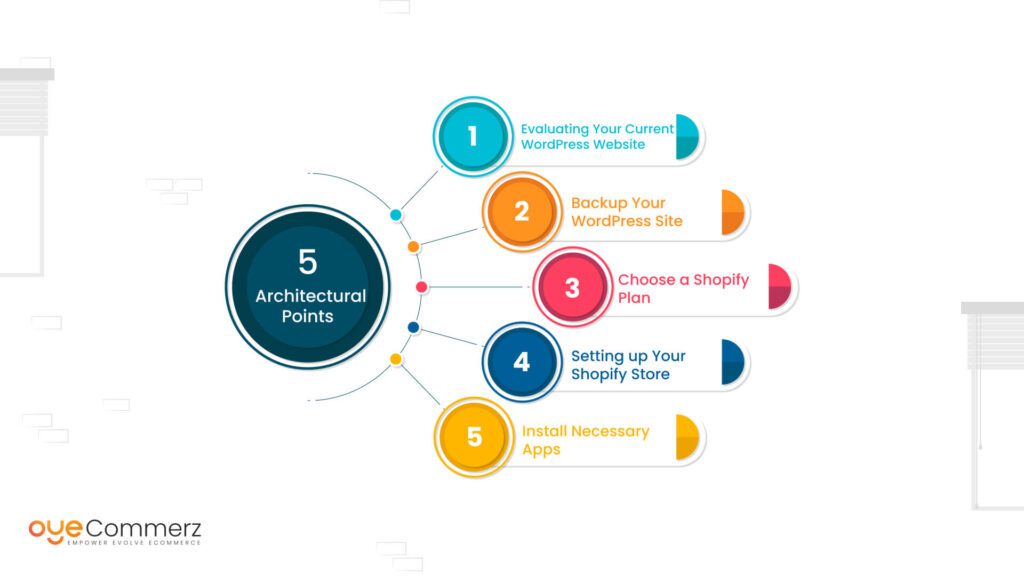In the dynamic world of online retail, picking the best system is vital for your business's success. If you’re presently using WP and considering a migration to an alternative, you’re not by yourself. Many businesses are switching to leverage Shopify’s comprehensive features, ease of use, and scalability. This guide will take you through the steps of migrating from WP to Shopify seamlessly, guaranteeing that you achieve your online retail potential.
Why Switch from WordPress to Shopify?
Before diving into the migration journey, it’s important to understand why this change can be advantageous for your eCommerce business:
Intuitive Design: Shopify provides an straightforward dashboard that makes easier store handling, allowing for non-technical users.
Growth Potential: As your company grows, Shopify can support increased visitors and sales without compromising performance.
Built-in Tools: Shopify includes pre-installed features for search engine optimization, analytics, payment management, and more, minimizing the requirement for several plugins.
Robust Protection: With Shopify, you get access to advanced security measures that secure confidential customer information.
Steps for a Effortless Migration
Migrating your eCommerce site from WordPress to Shopify includes multiple phases.
Here’s how to facilitate a successful transition:
Plan Your Migration Plan
Kick-off by outlining your migration plan. Pinpoint which elements of your present site you wish to migrate, such as:
Item details
Client data
Order history
Posts
Pick the Best Migration Package
Depending on your preferences, select a migration service that aligns with your store. OyeCommerz provides various choices:
Starter Package: Suitable for compact stores with minimal products.
Mid-Tier Plan: Suitable for mid-range businesses with more complex needs.
Premium Migration Package: Shopify for customer retention Best for big stores needing custom customization.
Secure Your Data
Ahead of beginning the migration, ensure that you have a complete copy of your WordPress site. This task is critical in the event anything goes off track during the Shopify for customer retention move.
Export Your Information from WordPress
Leverage plugins or custom scripts to transfer critical information from your WP site:
Items
Customers
Sales records
Blog posts
Migrate Data into Shopify
When you have your data extracted, use Shopify’s built-in features or third-party apps to transfer your data into your updated store. Confirm that all content is correctly structured and arranged.
Adapt Your Shopify Site
Once uploading content, adjust your Shopify site’s design to reflect with your style. Think about engaging a designer if you require advanced customization.
Configure Payment Gateways and Shipping Options
Arrange billing solutions and logistics options in Shopify to facilitate a smooth transaction experience for customers.
Adopt SEO Guidelines
To maintain your search engine rankings during the change:
Set up 301 redirects from previous URLs to new ones.
Revise meta tags.
Enhance media and content for search engines.
Review Your Updated Store
Ahead of going live, completely review your new store. Look out for any discrepancies, checkout failures, or untransferred content.
Go Live Your Platform
When everything is in place, it’s the moment to go live! Inform the update to your users and invite them to explore the new features of your Shopify store.
Post-Migration Support
Following launching your new store, ongoing help is essential. Explore working with professionals who can guide with:
Technical support
Promotional campaigns
Improvement strategies
Conclusion
Migrating from WordPress to this platform can be a crucial move for your online retail. By following this guide and working with experts like those offered by OyeCommerz, you can guarantee a effortless transition that boosts your digital storefront. Adapt to the opportunity and discover the advantages of Shopify today!
